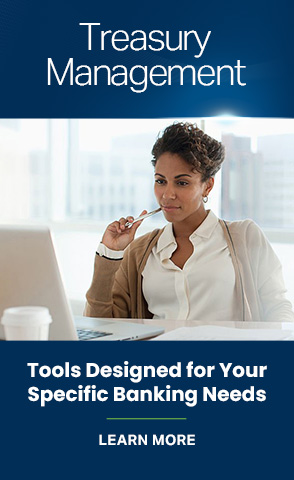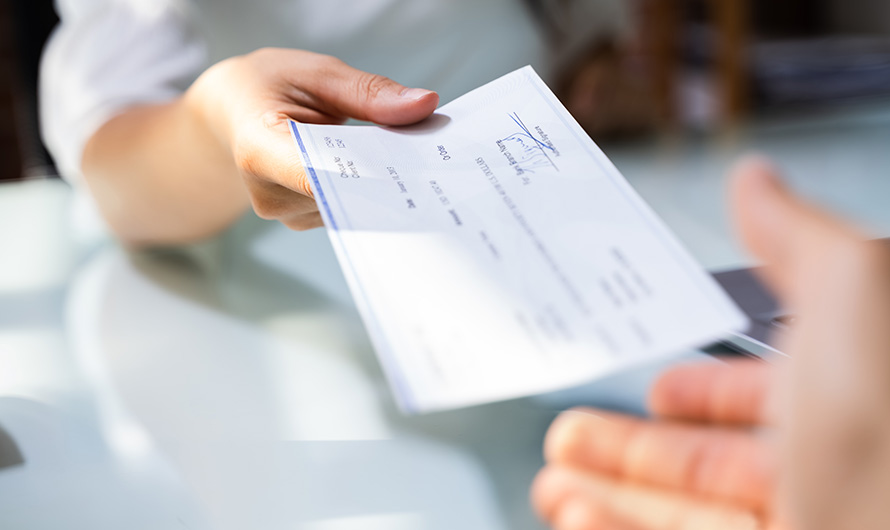

Fraud Prevention
Technology has empowered businesses to make more financial transactions, faster. With this increase in speed and cash flow comes an opportunity for fraud. Helping you secure your payment transactions and private data is our top priority. CNB is here to help protect your business.
NEW! Payee Positive Pay
Our Positive Pay service now includes an advanced feature known as Payee Positive Pay. This latest feature adds extra protection against fraudulent check-washing schemes by providing payee name verification. Through Payee Positive Pay, we match the payee name on the clearing check to the payee name on the check issue file that you created. A “payee mismatch” exception will be reported if the names do not match exactly. As always, with Positive Pay, you control whether to pay for the item or return it. This additional verification level gives your business another weapon to help win the fight against check fraud.
Payee Positive Pay benefits your business:
- With increased security for your business funds.
- By providing easy-to-view exceptions when you log in to Business eBanking.
- Through multi-layered fraud detection.
Positive Pay: Win the fight against check fraud.
Positive Pay is a web-based service that can help you detect check fraud by uploading your check files and verifying any payment exceptions daily.
Benefits
- Increased Protection Against Fraud
Daily checking your exceptions report allows you to make immediate payment decisions on potential check fraud. - Streamlined Efficiency and Ease
Positive Pay is an automated Business Banking Service, providing instant access to questionable check transactions. - Reduced Business Expenses
Losing money is costly for a business. Positive Pay helps reduce costs that may result from fraudulent checks.
Features
- This automated online service allows you to verify that you have actually issued the checks that post to your account.
- Positive Pay users upload check files directly to us.
- Once the check files have been uploaded, we will compare checks presented for payment each day with your check files within Positive Pay. Any exceptions are available by 7 a.m. each day.
- You decide about the payment of each check. Simply make payment decisions online by 10:30 a.m. each day.
Ready to win the fight against fraud?
Tips & Best Practices: Reduce the risk of check fraud.
Reconcile accounts promptly.
- Stay vigilant by reviewing items and reconciling your account on a daily basis. Verify that the check amount and payee match your records. Report any suspicious or unauthorized activity to us IMMEDIATELY.
- Report any irregularities to CNB by 10:30 a.m. Do not wait until the end of the month to reconcile your account.
- It is critical to always have at least one backup person responsible for reconciling your account when the primary person is unavailable.
Utilize ACH payments.
ACH payments are automated between financial institutions with money being transferred electronically between them. With this payment method, there is no risk of a check being stolen or used fraudulently.
Use a Positive Pay service.
This is possibly the best strategy for detecting check fraud.
Ask us for details.
Order checks through your bank.
Security features such as watermarks and reactive paper make it difficult to duplicate or tamper with a check. Other lower-cost options may not include these security features.
Properly fill out checks.
- Use the entire name of the company or individual and do not use abbreviations.
- Indicate the amount of the check with both numbers and words, and spell out the amount completely.
- Fill in the available space for all blocks and lines. If your entry does not fill the entire box or line, draw a line to the end of the space. This prevents criminals from making alterations such as adding zeros or alternative payees.
Avoid mailing checks in window envelopes.
Window envelopes make it too easy for criminals to identify a check.
Divide employee duties and educate your team.
- The person who issues checks should not be the same person who signs checks and reconciles bank statements.
- Check signers should not have access to blank checks or the ability to enter transactions into the accounting system.
- Stay informed about the latest check fraud trends and educate your team on the best practices to detect fraud.
Articles & Insights
Protect Your Identity Through Expert Advice and Applicable Tips
For Informational Purposes Only
These materials are for informational purposes only. These materials do not represent any opinion, guidance or recommendation, whether formal or informal, of Citizens National Bank or any of its officers, directors, employees, advisors, attorneys, consultants, affiliates or subsidiaries (collectively, “CNB”). Without limiting the generality of the foregoing, these materials do not represent legal advice or guidance by or from Citizens National Bank. In no event may the recipient of these materials rely on these materials for any purpose whatsoever. Nothing contained in these materials shall give rise to, or be construed to give rise to, any obligations or liability whatsoever on the part of Citizens National Bank. Nothing contained in these materials shall alter or modify, or be deemed to alter or modify, applicable law (including, but not limited to, the limitations under applicable law of Citizens National Bank’s obligations and/or liability in applicable matters). The recipient of these materials should consult the recipient’s own counsel to understand the recipient’s obligations and liability in applicable matters.


















